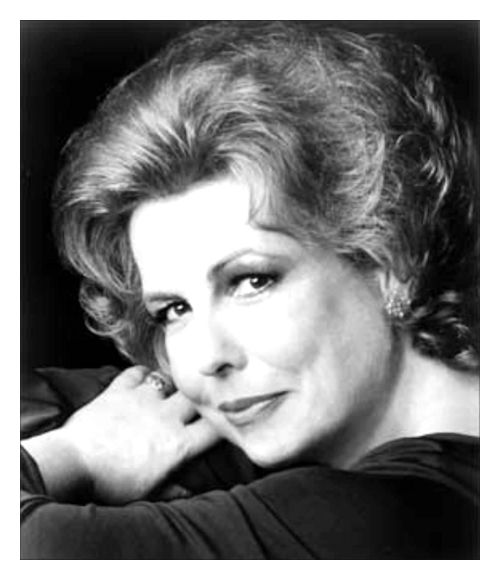

|
Obituary: Arleen Auger
By Elizabeth Forbes. Published in The Independent, Friday, June 11, 1993 [Text only. Photo and link added for this website presentation.] Arleen Joyce Auger, singer: born Los Angeles 19 September 1939; Professor of Music for Voice, University of Frankfurt 1975-87; died Leusden, The Netherlands 10 June 1993. The soprano Arleen Auger possessed a pure-toned voice of great flexibility and absolute accuracy of intonation. She excelled in the music of Monteverdi, Bach, Gluck, Haydn, Handel and in particular of Mozart, but also sang works by 20th-century composers such as Carl Orff with great success. Auger's voice was not large, but it was perfectly focused and so well projected that it could easily be heard in the biggest auditorium. During a career lasting 25 years, she appeared in opera and oratorio, on the concert platform and in recital both in Europe and the United States. She made a vast number of records, which included more than 90 Bach cantatas. At the wedding of Prince Andrew (later the Duke of York) and Sarah Ferguson in Westminster Abbey, in 1986, she sang two Mozart anthems with the soprano Felicity Lott during the signing of the register. Auger was born in Los Angeles in 1939. After graduating from California State University at Long Beach, in 1963, she studied singing with Ralph Errolle in Chicago, making her professional debut in concert with the LA Philharmonic Orchestra. She won a scholarship to study in Vienna. Having auditioned for the conductor Josef Krips, she was engaged in 1967 at the Vienna State Opera, making her debut as the Queen of Night in Die Zauberflote. Her other roles in Vienna included Constanze in Die Entfuhrung aus dem Serail - which she later recorded with Karl Böhm - and Gilda in Rigoletto. At the Volksoper she sang Valencienne in Die lustige Witwe, Marie in La Fille du regiment and in 1972 created Alma in Kaufmann's Konig Nicolo.
So far, apart from singing the Queen of Night for New York City opera in 1969, Auger had spent her career mostly in Europe. After her Metropolitan debut in 1978 as a charming Marzelline in Fidelio, she sang more frequently in the United States. During the early 198Os she appeared at the Aspen Festival and the New England Bach Festival; she gave a recital at Alice Tully Hall in New York; she sang Donna Anna, a heavier role than any she had previously attempted, for Kentucky Opera, Louisville; she took the part of Amor in a concert performance of Gluck's Orfeo ed Euridice, conducted by Riccardo Muti at Carnegie Hall, and sang in Carl Orff's Carmina Burana with the Philadelphia Orchestra. Auger first sang the title-role of Handel's Alcina, one of her finest operatic characterisations, in a staged performance at Christ Church, Spitalfields, during the 1985 City of London Festival. Alcina, the beautiful sorceress, a part requiring great brilliance of vocal technique, as well as considerable dramatic power, remained a favourite with Auger, who recorded the opera and sang it in Los Angeles the following year. In 1990 she sang it at Geneva and then at the Theatre du Chatelet in Paris. In 1987 Auger sang Ilia in a concert performance of Idomeneo at the Queen Elizabeth Hall, given by the Orchestra of the Age of Enlightenment, conducted by Simon Rattle; Ilia, the gentle but courageous princess, was another of the roles that she interpreted particularly well, both vocally and dramatically; the heroine of Monteverdi's L'incoronazione di Poppea, which she sang in 1988 at Spitalfields, and later recorded was, at that stage in her career, less suitable, although she sang Poppea's music very beautifully. She sang the Countess in Le nozze di Figaro at the Los Angeles Music Center in 1990, and the following year Lieder at the Hohenems Schubertiade. Throughout the 1970s, 1980s and early 1990s, Auger was kept busy recording a wide variety of music: Gluck's Iphigenie en Aulide, Mozart's early operas Il re pastore and Ascanio in Alba, as well as the Countess and both Donna Elvira and Donna Anna; the roles of Angelica in Haydn's Orlando Paladino and in Handel's Orlando provide another interesting contrast, while the Italian Soprano in Richard Strauss's Capriccio is a very successful departure from her usual repertory. She can also be heard, together with Della Jones, frequently her 'male' partner in Handel and Monteverdi operas, as one of the two Nursemaids in Kurt Weill's Street Scene. Her recordings - nearly 200 in number - include the St Matthew
Passion and the Brahms Requiem. Among her finest recent discs
is a set of Haydn arias and cantatas, with superb performances of the
Scena di Berenice and Arianna a Naxos. These illustrate
to perfection the elegance and stylishness of Arleen Auger's singing.
[A few samples have been selected to be shown this webpage, and
were chosen for their artwork, or their relevance to the conversation, or
their inclusion of other interview guests of mine. No comparison of one to
another, nor critical assessment is implied by the use or non-use of any
of her recordings. Also, throughout this page, names which are links refer
to my Interviews elsewhere on my website. BD] |
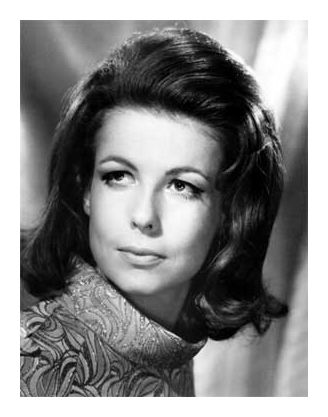 AA: My home base now is Munich. I was in Frankfurt,
but it’s more convenient for me now in Munich... though it’s really
only to change suitcases, as I’m never there either. I’m constantly
on the road, and until I decide which of the continents are going to be
more of my year, I’m just going to have to accept the fact that I am never
home, because when I’m free, I’m in the other part of the world. I’ve
built a very solid career in Europe, and I don’t want to give it up. I
like working in Europe very much. I like living in Europe very much.
I’m very pleased that America has opened up as it has, and that year after
year it opens up more. I just have to make sure that I can combine
the two for at least a few years, and then where I’ll settle down I don’t
know yet. I definitely want to teach. I love to teach, and I
think I would like to teach in America, so it looks as if I would plan to
come back at some point and have a good portion of my year in America. But
I’m not at that point now. America continues to develop, and opera
is developing again, so I just can’t say no to Europe, at least not yet.
AA: My home base now is Munich. I was in Frankfurt,
but it’s more convenient for me now in Munich... though it’s really
only to change suitcases, as I’m never there either. I’m constantly
on the road, and until I decide which of the continents are going to be
more of my year, I’m just going to have to accept the fact that I am never
home, because when I’m free, I’m in the other part of the world. I’ve
built a very solid career in Europe, and I don’t want to give it up. I
like working in Europe very much. I like living in Europe very much.
I’m very pleased that America has opened up as it has, and that year after
year it opens up more. I just have to make sure that I can combine
the two for at least a few years, and then where I’ll settle down I don’t
know yet. I definitely want to teach. I love to teach, and I
think I would like to teach in America, so it looks as if I would plan to
come back at some point and have a good portion of my year in America. But
I’m not at that point now. America continues to develop, and opera
is developing again, so I just can’t say no to Europe, at least not yet.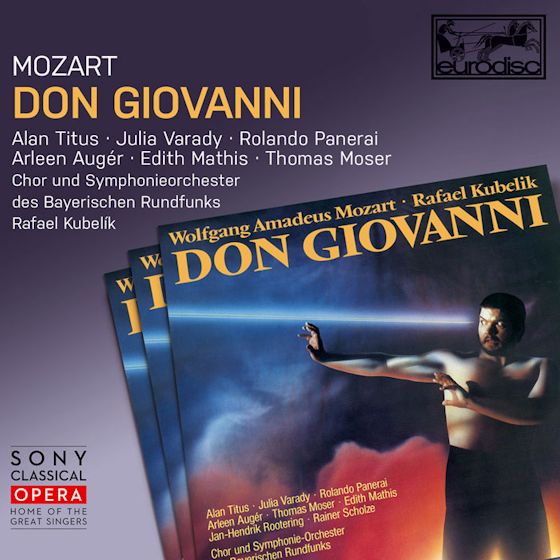 BD: You started out singing the Queen of the Night and
all of these high-flying roles. Did Mozart write enough of these
high-lying roles?
BD: You started out singing the Queen of the Night and
all of these high-flying roles. Did Mozart write enough of these
high-lying roles? 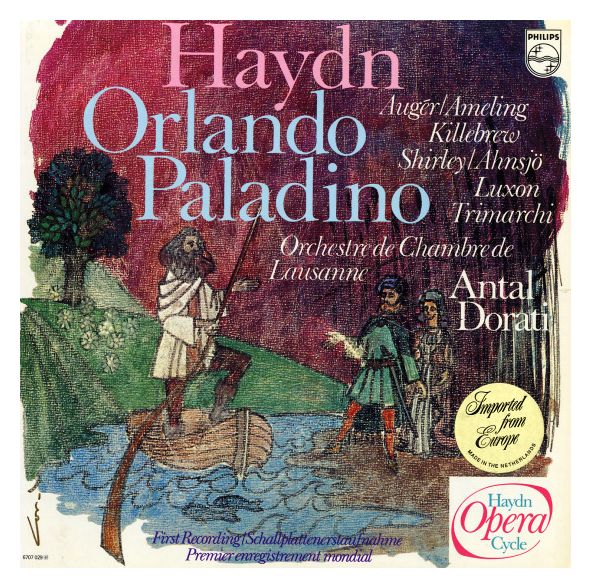 BD: That is a very optimistic view. Are you optimistic
in general about the future of opera?
BD: That is a very optimistic view. Are you optimistic
in general about the future of opera? | [Note: This box contains a review of the recording
by Brian Robins, the text of which appeared in Fanfare magazine.
Photo and links added for this website presentation.] Richard Hickox’s recording of Alcina stemmed from a highly effective production by Frank Corsaro, first given at Hawksmoor’s wonderful Christ Church, Spitalfields in London in July 1985, and subsequently at the Cheltenham Festival later the same month. The studio recording was made at the same time as the British performances, while the production was also seen in Los Angeles the following year. 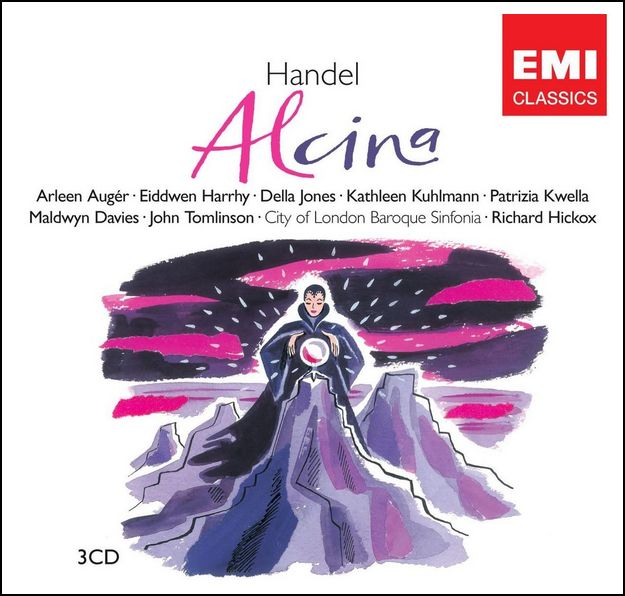 Missing from the catalog for some time, the return of the set at
midprice is extremely welcome for at least two good reasons. The first
is that it was, and remains, the only absolutely complete recording of
Handel’s original 1735 score, including the ballet music written for
the famous Marie Sallé. Indeed, it is more complete than complete,
as a fine aria for Bradamante, “Bramo di trionfar,” cut by Handel when
he added the character of Oberto late in the day is included as an appendix,
as is an alternative version of the act I chorus, “Questo è il
cielo.”
Missing from the catalog for some time, the return of the set at
midprice is extremely welcome for at least two good reasons. The first
is that it was, and remains, the only absolutely complete recording of
Handel’s original 1735 score, including the ballet music written for
the famous Marie Sallé. Indeed, it is more complete than complete,
as a fine aria for Bradamante, “Bramo di trionfar,” cut by Handel when
he added the character of Oberto late in the day is included as an appendix,
as is an alternative version of the act I chorus, “Questo è il
cielo.” The second reason is Arleen Augér’s singing of the title role, a wonderful testament to the American soprano who is today still lamented following her tragically early death in 1993. Not only was Augér in glorious voice at the time the recording was made, but her Alcina is outstanding for the depth and insight she brings to one of Handel’s most complex heroines. “Di’, cor mio,” Alcina’s first aria, instantly brings us face to face with a woman well aware of her sensual powers, yet at the same time one who is equally prey to fragility and vulnerability. Later in the same act, “Sì; son quella” leaves ambivalent feelings. Is this a woman turning on feminine wiles? Or one suffering bitter hurt, as the change of tonal color on the word “traditore” suggests? Augér cleverly leaves us guessing. In act II, she makes the most of the brilliantly dramatic surprise at “Ah! mio cor!”, a point at which we expect a brilliant coloratura outburst of fury, but instead have our hearts wrung by the sorceress’s almost unbearable pain—listen to Augér’s singing of “sola in pianto” (“alone and in tears”)—while in the B section the repeated, unanswerable word “Perche?” rings out inconsolably. The great, accompanied recitative that precedes “Ombre pallide” is projected with spine-tingling intensity, while the latter sets the seal on a magnificent assumption of the role. I wrote “at least” above advisedly, for the performance has other strong merits, not least Kathleen Kuhlmann’s splendid Bradamante, a role she repeated some 15 years later with equal success for William Christie. There is, in fact, not a weak link in a cast completed largely by highly proficient and stylish British singers, although there are times when Della Jones’s vibrato is a little overdone. Particularly impressive is Maldwyn Davies’s Oronte, his elegantly produced tenor ideally suited to the charming minuet-tempo “Un momento di contento,” while Patrizia Kwella, a highly promising soprano whose career was set back by serious illness, makes for an enchanting Oberto who rises well to the challenge of “Barbara!”, the florid act III aria in which the page dares to confront Alcina. The eclectic Richard Hickox is today far less associated with Baroque repertoire than he was 20 years ago, and it has to be said that he was not a perfect Handelian. Many of the tempos here are decidedly on the slow side, at times to the point of sounding rhythmically sluggish compared with the vitality of such outstanding Handelians as Alan Curtis or (on occasions) Marc Minkowski. There are times when Hickox seems over-seduced by the sheer beauty of this most ravishing of scores, and he makes a real meal of its most famous number, “Verdi prati.” Neither is the playing of the City of London Baroque Sinfonia, a pickup band led by Simon Standage, as finished as we would expect today. Yet Hickox is admirably supportive of his singers, and the whole performance has an overall feel of the kind of integrity that is now too often sadly lacking. [Also see my Interview with John Tomlinson.] There is only one rival period performance, that of Christie (Erato), a version largely dismissed by both Bernard Jacobson and myself in Fanfare 24:1 on account of the wildly unstylish ornamentation employed by its star singers, Renée Fleming, Susan Graham, and Natalie Dessay. That is not a problem with the Hickox, where, apart from the odd over-exuberant flourish from Augér, embellishments are stylish and sensible. Those wishing to return to an earlier style of Handel performance—cuts, transpositions and all—are reminded of three recordings featuring a famous Alcina, Joan Sutherland, the recommendation of both Jacobson and another former Fanfare reviewer, Ralph V. Lucano, being for the one conducted by Ferdinand Leitner (Melodram). EMI has slightly altered the disposition of the three discs for the present reissue, giving better-placed changes that now leave the whole of the final disc devoted to act III. The sound remains very good. On the downside, there is no longer a libretto, although you can download it if you go to EMI’s Web site; and the excellent essay by Handel authority Anthony Hicks that accompanied the original issue has been dropped in place of a much briefer essay and a prosaic synopsis of the plot. It would be idle to claim that Hickox’s Alcina does full justice to one of Handel’s greatest operas. Yet it is unquestionably the best we have for the moment, and, above all, should be snapped up by anyone who appreciated the art of the much-missed Arleen Augér. FANFARE: Brian Robins |
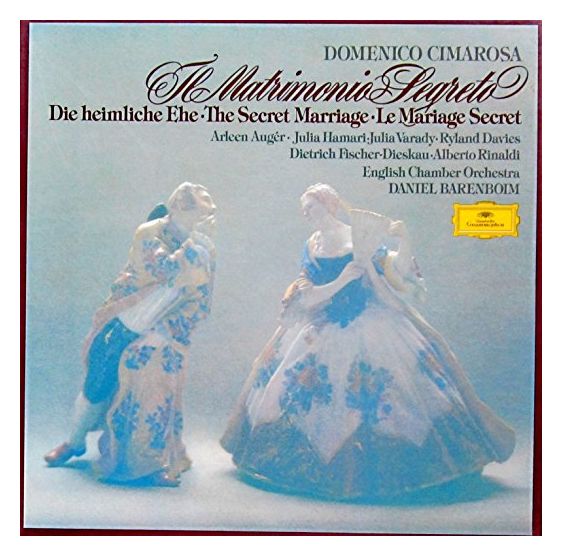 AA: Yes. You have to rely less on colleagues.
I’m always disappointed when we have a quartet of soloists who are screaming
like opera singers, and who are only interested in their own voice
and their own line, and not interested in ensemble. I’m always
interested in ensemble, whether it’s me with an orchestra, or me with
a group of other soloists. I’m not as important as the music, and
I’m always disappointed to see when other people are not as interested
in music. But the longer you work and the higher you come in the profession,
the better the chances are that you’re going to find good colleagues, and
good conductors, and good orchestras who are interested in making music
and enjoying music. So it’s worth the struggle up. These days,
I’m pretty well guaranteed — ninety-nine per cent
of the time — that I’m going to find this.
Whether it comes off, depends on the situation, and there are no guarantees
in this business! But the chances are good for my concerts, as are
my recordings. Many artists would do a great deal of recording, and
I love recording. I apparently have a good voice for a microphone,
and I like the intensity and the striving towards the perfectionism.
However, I’m not as interested in reaching perfectionism on the recording
as the recording team. [Laughs] I would rather have some slight
degree less than perfect, and have more musical life on a recording.
AA: Yes. You have to rely less on colleagues.
I’m always disappointed when we have a quartet of soloists who are screaming
like opera singers, and who are only interested in their own voice
and their own line, and not interested in ensemble. I’m always
interested in ensemble, whether it’s me with an orchestra, or me with
a group of other soloists. I’m not as important as the music, and
I’m always disappointed to see when other people are not as interested
in music. But the longer you work and the higher you come in the profession,
the better the chances are that you’re going to find good colleagues, and
good conductors, and good orchestras who are interested in making music
and enjoying music. So it’s worth the struggle up. These days,
I’m pretty well guaranteed — ninety-nine per cent
of the time — that I’m going to find this.
Whether it comes off, depends on the situation, and there are no guarantees
in this business! But the chances are good for my concerts, as are
my recordings. Many artists would do a great deal of recording, and
I love recording. I apparently have a good voice for a microphone,
and I like the intensity and the striving towards the perfectionism.
However, I’m not as interested in reaching perfectionism on the recording
as the recording team. [Laughs] I would rather have some slight
degree less than perfect, and have more musical life on a recording.
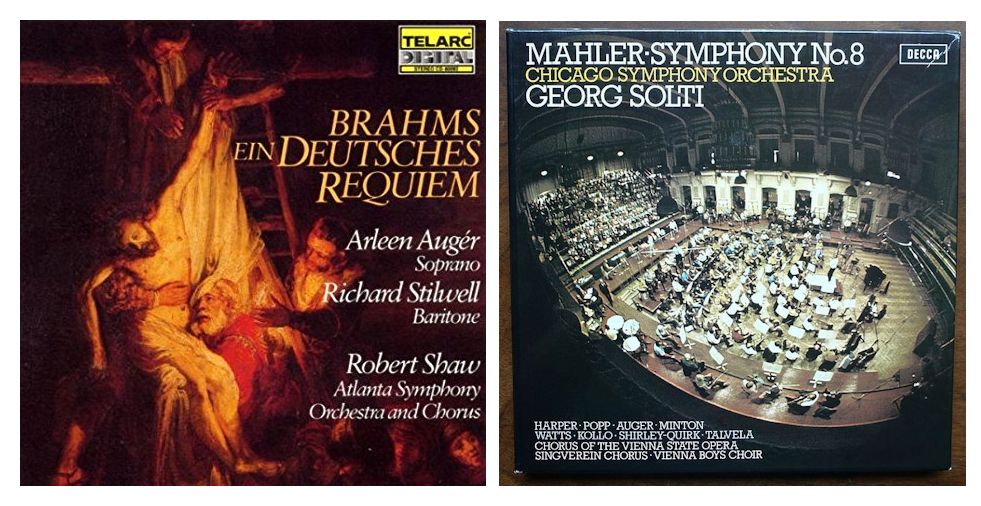
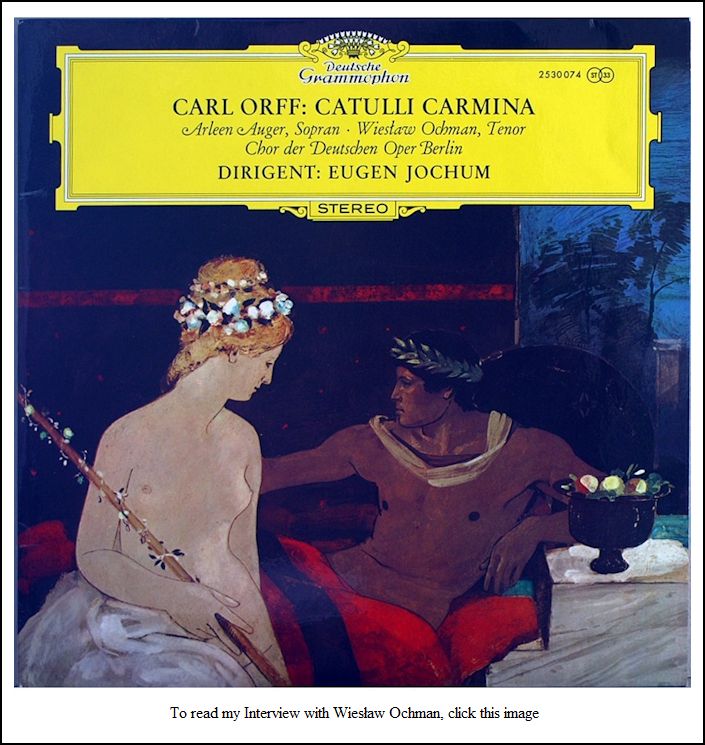 AA: I become that character. It’s required
more and more of us in the opera field to be actors and actresses than
it used to be. I find the acting part very fascinating, but it can
only work if we have a stage director who is interested in giving us
his concept, and helps us with all of his theater ability to reach our
potential, not anyone else’s potentials. We have the greatest amount
of freedom within his concept to develop our concept with him, so that
we’re not doing his act and he’s not forced to do ours. We’re coming
together as a team to find the best concept possible.
AA: I become that character. It’s required
more and more of us in the opera field to be actors and actresses than
it used to be. I find the acting part very fascinating, but it can
only work if we have a stage director who is interested in giving us
his concept, and helps us with all of his theater ability to reach our
potential, not anyone else’s potentials. We have the greatest amount
of freedom within his concept to develop our concept with him, so that
we’re not doing his act and he’s not forced to do ours. We’re coming
together as a team to find the best concept possible. 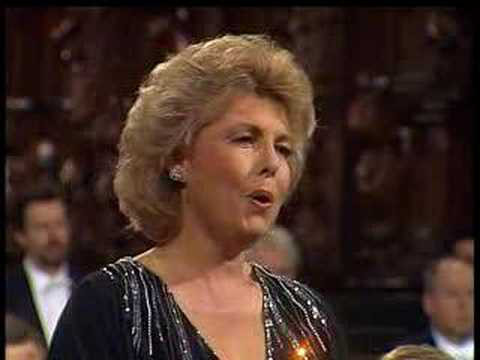 BD: So is this a good thing that opera and orchestral concerts
go to television and video?
BD: So is this a good thing that opera and orchestral concerts
go to television and video? 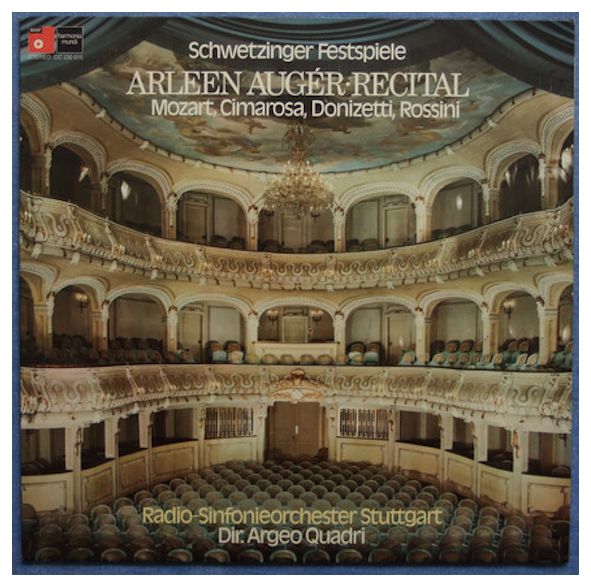 BD: Are you happy with your audio recordings?
BD: Are you happy with your audio recordings?
© 1985 Bruce Duffie
This conversation was recorded in Evanston, Illinois, on August 21, 1985. Portions were broadcast on WNIB the following day, and again in 1989, 1990, 1992 and 1999. This transcription was made at the very beginning of 2018, and posted on this website at that time. My thanks to British soprano Una Barry for her help in preparing this website presentation.
To see a full list (with links) of interviews which have been transcribed and posted on this website, click here.
Award - winning broadcaster Bruce Duffie was with WNIB, Classical 97 in Chicago from 1975 until its final moment as a classical station in February of 2001. His interviews have also appeared in various magazines and journals since 1980, and he now continues his broadcast series on WNUR-FM.
You are invited to visit his website for more information about his work, including selected transcripts of other interviews, plus a full list of his guests. He would also like to call your attention to the photos and information about his grandfather, who was a pioneer in the automotive field more than a century ago. You may also send him E-Mail with comments, questions and suggestions.